Does Biotin Cause Acne? Discover The Answer Here!
The link between biotin and acne has been the talk of the town ever since some people claimed that taking biotin supplements had caused them to break out. But does biotin cause acne for certain? It’s time to find out.
On Feb 10, 2024 – 7 minutes read
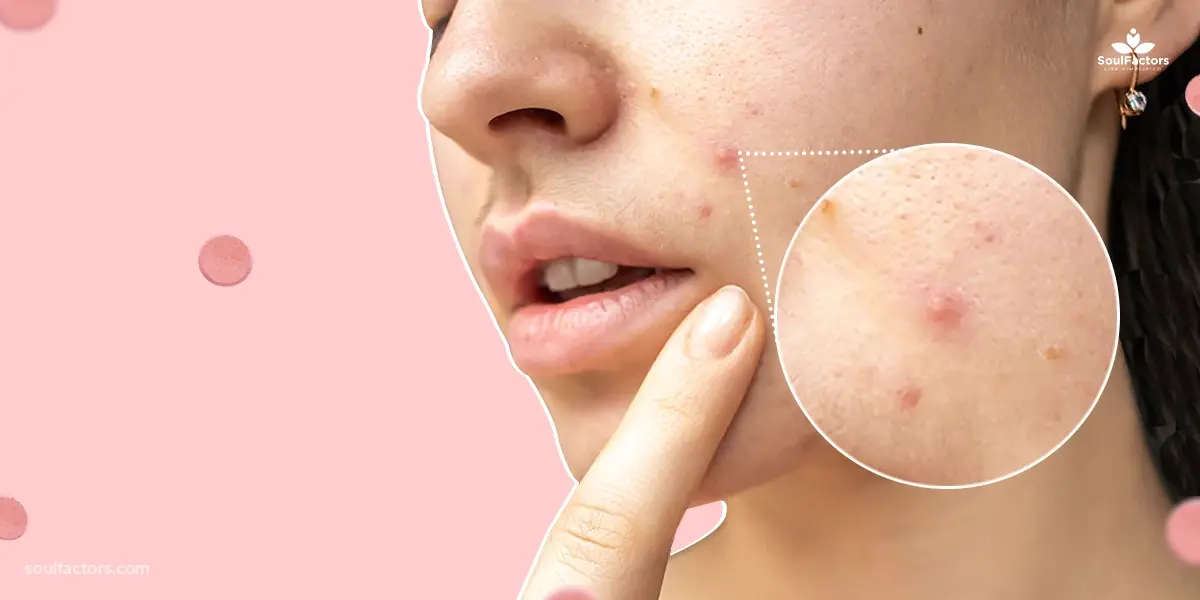
The question – “Does biotin cause acne?” bothers many individuals who are interested in taking biotin supplements. Who would want their skin to break out, after all?
Biotin, or vitamin B7, is thought to cause acne in some individuals. This claim is, however, based on anecdotal evidence, and there is minimal evidence supporting this claim. It is more about pantothenic acid deficiency than biotin. More on that later.
First, let’s learn more about this supplement and then explore the relationship between biotin and acne.
What Is Biotin?
Biotin, also known as vitamin B7, is one of the vitamins constituting the vitamin B complex.
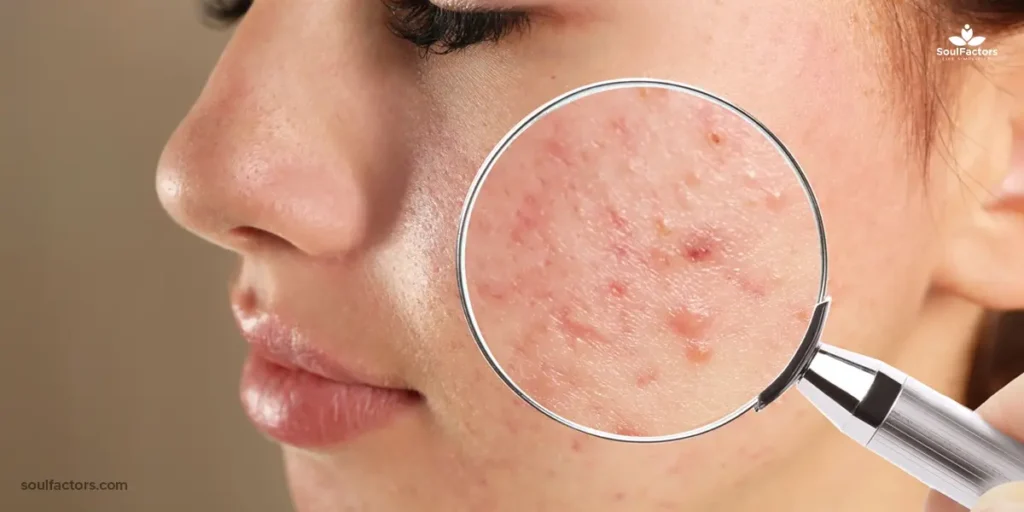
It is a water-soluble vitamin that is not synthesized in the body. However, this essential nutrient is present in many food items, and people normally get enough of it through diet.
When consumed in adequate amounts, biotin helps convert food into energy and maintains the overall health of an individual.
Biotin Benefits
Biotin has become a popular supplement these days and is used to derive a number of health benefits. It is believed to provide the following benefits:
- Support hair growth
- Strengthen brittle nails
- Boost and maintain healthy skin
- Support fetal development in pregnant women
- May help regulate blood sugar levels in people with type 2 diabetes
- May improve nerve health and benefit people with multiple sclerosis
- May prevent hyperlipidemia(1) by helping in the breakdown of cholesterol and triglycerides
Why Is Biotin Important?
While biotin is popularly known for benefiting skin, nails, and hair, this vital nutrient has other important jobs to do in your body. It serves as a cofactor for five enzymes (carboxylases) that aid in the metabolism of glucose, fatty acids, and amino acids and facilitate energy production. It also supports gene activity and expression, regulates cell signals in the body, and helps the nervous system function normally.
Does Biotin Cause Acne?
Now let’s get down to the crux of this discussion. So, does biotin cause acne or weight gain? Honestly, there isn’t enough research supporting the claim that biotin use can lead to acne breakouts. So, saying that it does won’t be fair.
One theory on “How does biotin cause acne?” proposes that because pantothenic acid (vitamin B5) and biotin are absorbed through common pathways, having more amounts of biotin in the body regularly results in less absorption of pantothenic acid. Because vitamin B5 helps prevent acne and reduces acne lesions, having a pantothenic acid deficiency in the body increases the chances of acne breakouts. However, more research is needed to fact-check this theory.
How To Use Biotin?
Like with any new supplement, please talk to your doctor first if you’re planning to start taking biotin supplements. To derive maximum benefits, take biotin supplements first thing in the morning, before breakfast, or as directed by your doctor. Have it with a full glass of water, and do not take more than suggested. More is not always better. So stick to your recommended dose.
Effects Of Biotin On The Skin
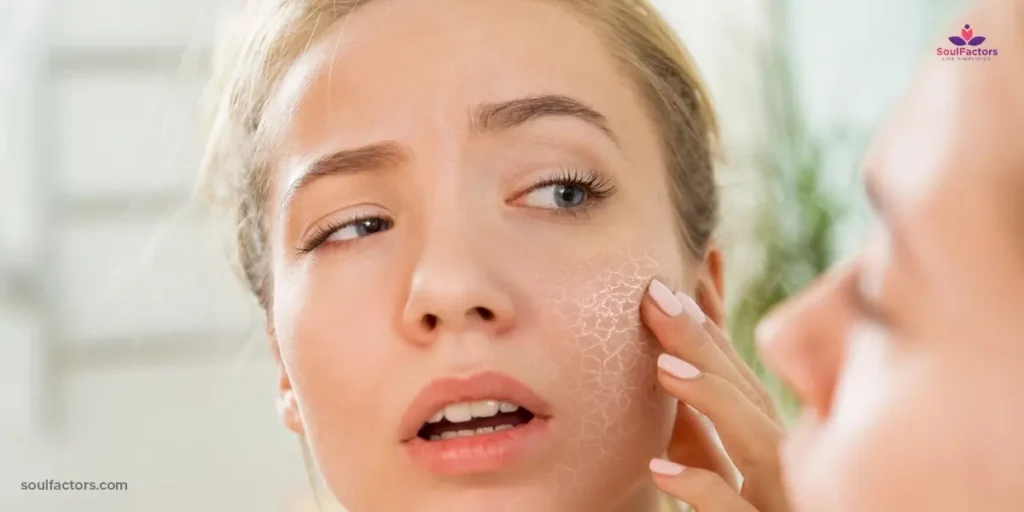
Biotin is known to help in the formation of fatty acids that provide nourishment to the skin and make oil glands function properly. It can benefit excessively dry skin and those with dermatitis. However, more research is required to study its effectiveness in healthy individuals.
Relation Between Biotin And Acne: Does Biotin Treat Acne?
There may not be significant evidence confirming that biotin can cause pimples, but there is some that suggest quite the opposite.
One study reported that biotin can actually help combat comedonal acne(2) and control the redness, irritation, and flaking associated with the use of topical retinoids for acne treatments.
Furthermore, another study checked the effectiveness of using an oral supplement containing biotin(3) and other supplements along with a topical cream for the treatment of mild to moderate acne. Though most patients had satisfactory improvements, it is difficult to establish if the positive results were only because of biotin.
Biotin Pros And Cons
Here is a list of the advantages and disadvantages of biotin supplements:
Pros
- It is affordable.
- It is readily available as an OTC product.
- It is easy to pop a biotin pill and maintain a regular intake of the nutrient.
- It is beneficial for people with biotin deficiency.
- It supports metabolism and maintains a continuous supply of energy in the body.
- It plays a part in maintaining healthy hair, skin, and nails.
Cons
- May not be effective for every person taking the supplement.
- May cause breakouts in some individuals.
- May trigger side effects and allergic reactions.
- This may lead to excessive facial hair.
- There is limited evidence supporting its purported benefits.
- It is not approved by the Food and Drug Administration (FDA).
What Are The Side Effects Of Taking Biotin?
Biotin supplements are usually safe when ingested by mouth or applied to the skin in the form of skincare products. This holds true only when you stick to the prescribed dose. Sometimes, it may cause a skin rash, an upset tummy, or an allergic reaction in sensitive individuals.
In addition, there are a few things you must bear in mind before taking biotin supplements:
- Biotin might interact with certain medications.
- It may hinder the absorption of nutrients like vitamin B5 and alpha-lipoic acid.
- It can interfere with lab reports of tests like thyroid and vitamin D, leading to altered readings.
Therefore, let your doctor know if you are taking biotin before going for a lab test. Also, share your current medications with your doctor so they can ascertain that there are no possible interactions that increase health risks.
Do Biotin Supplements Work?
Limited research suggests that biotin supplements may be of some benefit to patients with biotin deficiency.
However, despite being a popular supplement, there is no strong evidence that indicates biotin can improve the hair(4) and nail quality of otherwise healthy individuals who are not deficient in this nutrient.
So, talk to your doctor to weigh in its benefits before you add this supplement to your diet.
Food Sources Of Biotin
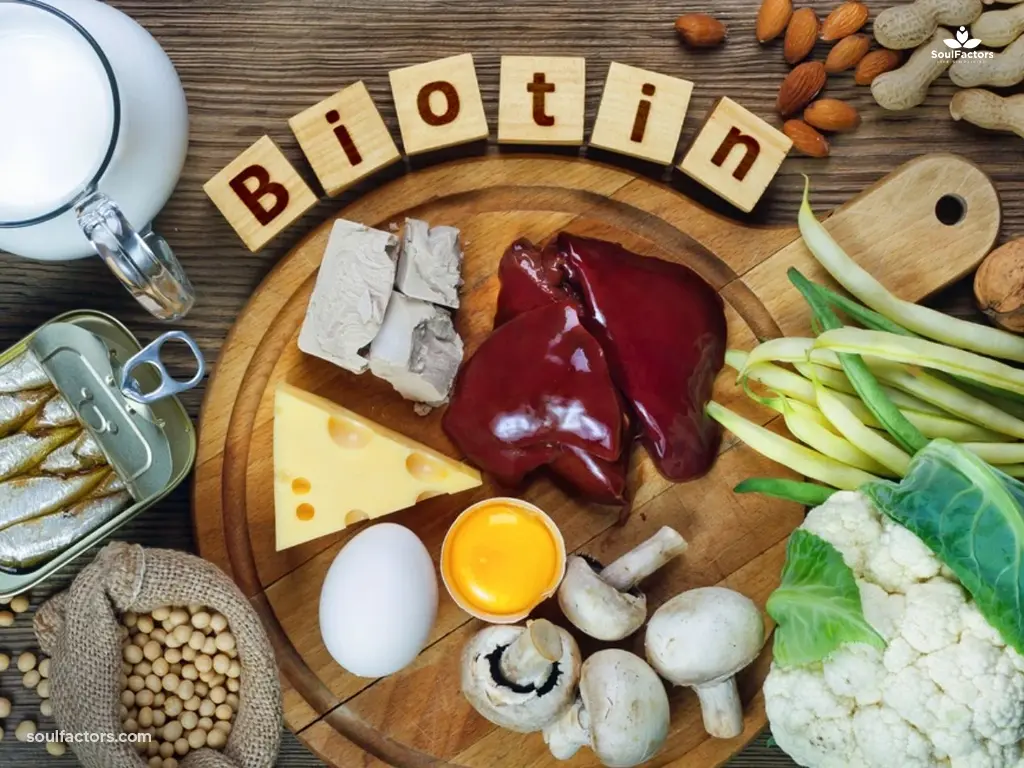
Even though biotin is not synthesized in the human body, you can fulfill its recommended dietary allowance by incorporating biotin-rich foods into your diet. Food sources rich in biotin are:
- Eggs
- Salmon
- Bananas
- Avocados
- Mushrooms
- Nuts and seeds
- Sweet potatoes
- Legumes – beans, lentils, peas
- Organ meats – beef or chicken liver
FAQs
While there’s no established fact, your breakouts could be due to poor absorption of vitamin B5 due to high levels of biotin in your body. As vitamin B5 helps keep a check on acne, its deficiency could be causing you to break out. If you’re concerned, stop taking biotin supplements and pay a visit to your doctor.
If you fear breaking out, try adding biotin-rich foods to your diet. Biotin obtained from foods is a safe way to get the nutrient.
Topical biotin, and that which is present in cosmetic products, is usually safe when applied to facial skin. But one cannot completely ignore the chances of side effects.
Biotin can help regrow hair to some extent in people with biotin deficiency. However, there is no strong evidence suggesting that it can also benefit people without the deficiency.
While it is not clearly established that biotin is bad for acne-prone skin, some research suggests that it may actually improve comedonal acne.
Biotin may show hair thickening in those with deficiency but not necessarily in healthy individuals.
The effects of biotin on facial hair are yet to be studied in detail. Though biotin is known to promote healthy hair, whether it specifically causes facial hair growth is still uncertain.
The US FDA does not suggest regular intake of biotin in healthy individuals. Always speak with your doctor first if you’re thinking of taking biotin every day.
Skin issues like rashes or allergic reactions may occur if you take too much biotin or if you are sensitive to the supplement.
If you’re allergic to biotin, you may manifest symptoms like a rash, nausea, swelling in the throat, and difficulty breathing. Visit your doctor immediately if you experience any of these symptoms after taking a dose of a biotin supplement.
While it remains unclear whether biotin causes acne, if at all it does, the breakouts should diminish in a few days after stopping its intake.
Summing Up
Biotin is a vital nutrient for the human body. Even though biotin deficiency is rare, many healthy individuals use it as a supplement to improve the quality of their skin, nails, and hair. With this comes the often-asked question, “Does biotin cause acne breakouts?”
Though there is no significant evidence stating that biotin causes acne, we do have some evidence that signals its utility in acne treatment. As the effects of biotin can vary among individuals, you must avoid self-administration and discuss it with your provider so they can guide you on its correct use and dosage.

Subscribe to Newsletter
Elevate your routine, stay on trend, and embrace a personalized beauty journey with our curated insights.


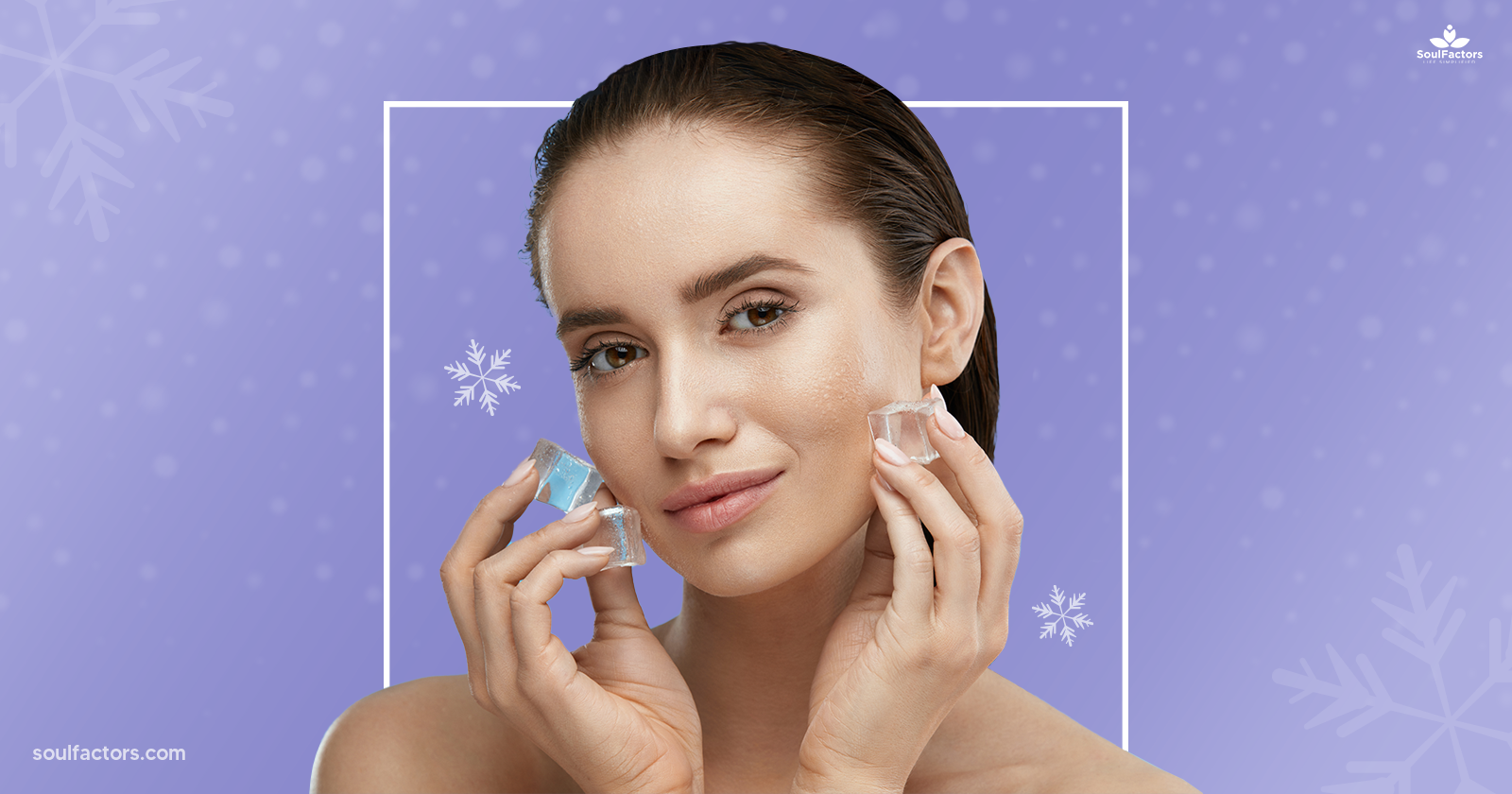
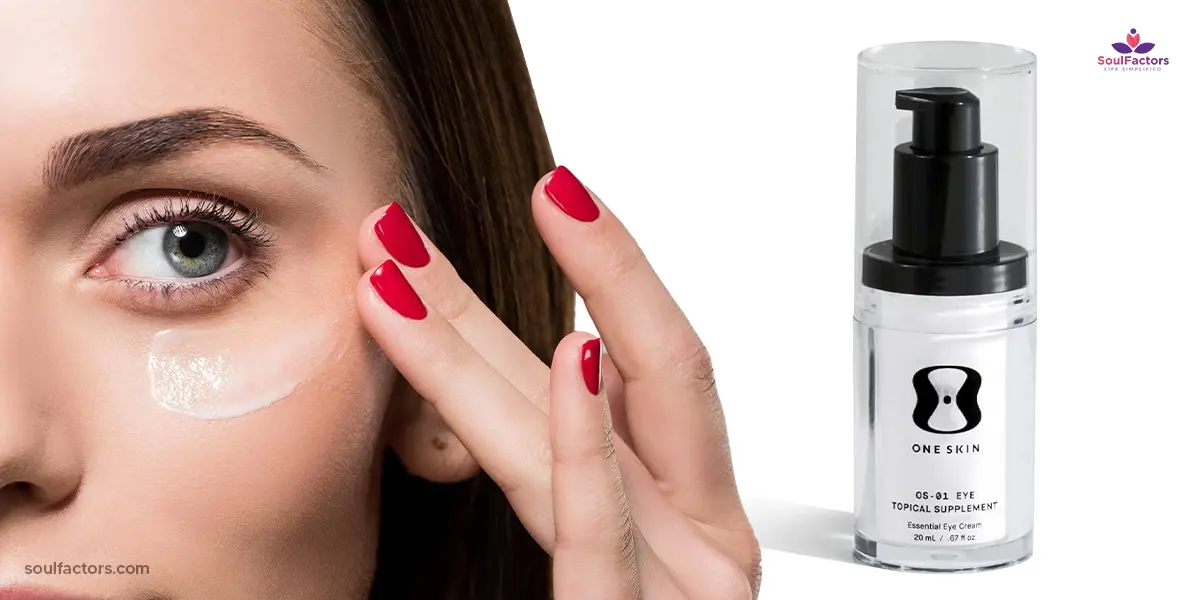
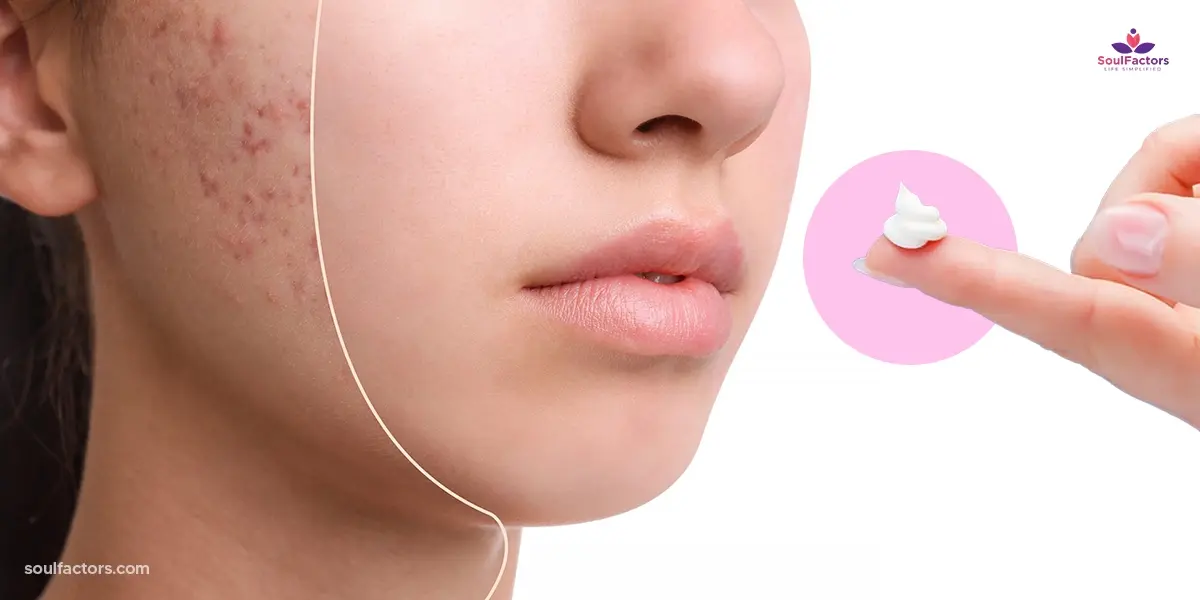
Write a Comment